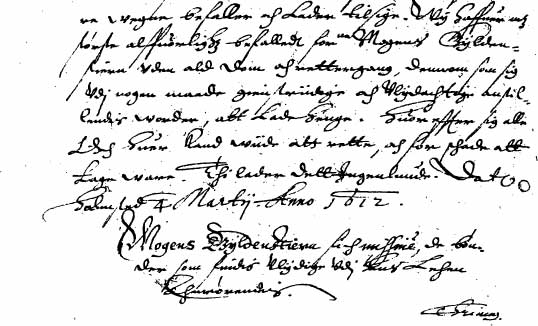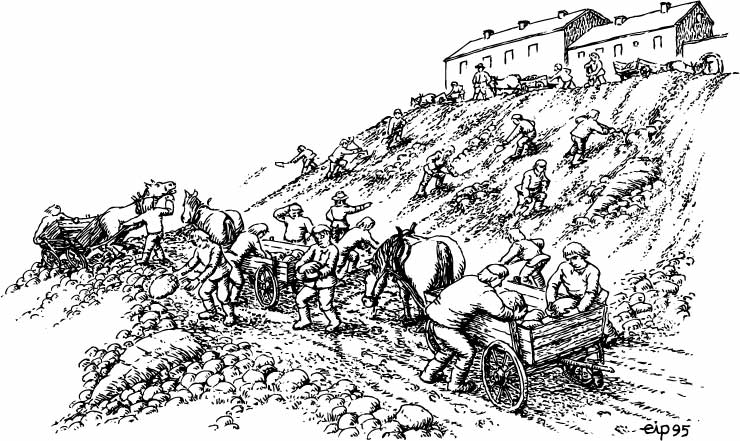
“to hang … without judgement and trial …”
Farmers
For many farmers in Halland, life was never really the same after the construction of the fortress began. The king needed labour and the peasants in the area, were used to hard work and did not need to be paid! The king could demand that they carried out the work on the building as a form of tax. They had to do the hard work – drive wagons with stone and earth, dig and carry building materials.
But the farmers had to take care of their farms to get food and clothes. How would they manage it if they were to work on the construction of the fortress? They had no choice. If they protested against the work, they risked being hanged without a trial.
Some farmers tried to avoid work. Mogens Gyldenstierne complained to the king who replied with a letter dated 4 March 1612: (see original at the top)
In English it reads roughly as follows:
We have with the utmost seriousness ordered the aforementioned Mogens Gyldenstiern to hang, without judgement and trial, those who in any way behave reluctantly and disobediently.
The peasants who stayed at home and did not obey Mogen’s orders would thus be hanged without judgement or trial. If the castle lord did not comply with the king’s orders, he himself would be punished.
Those few who remained on the farm, often women and children, had to take care of the agricultural work.
Letter from the king to the castle lord Jacob Beck, dated October 2, 1606. The farmers who work at the fortress have applied for certain tax reliefs due to their “poor situation and the substantial and daily servitude”, i.e. their unfortunate predicament and the substantial and daily servitude that the work on the fortress now entails. The king granted their request.

Video
Pablo Wiking Faria was a historian and researcher at the Halland Museum of Cultural History and has studied the role that northern Halland’s farmers played in the construction of Varberg Fortress. In the video in the exhibition he talks about their working conditions and what was expected of them during the construction of the fortress.
